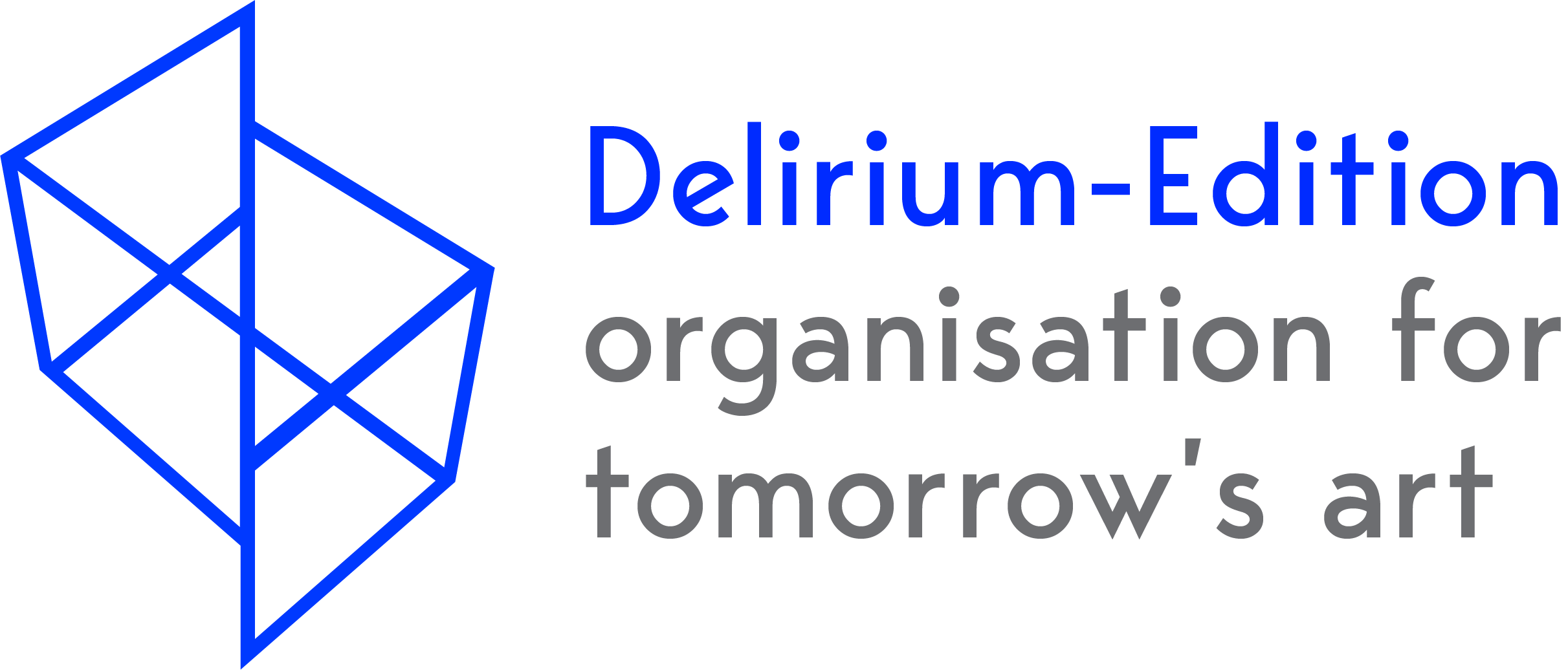Wiktor Kociuban: conductor and cellist of Polish descent. Creator, managing and artistic director of Delirium-Edition.
“What impresses me about Wiktor Kociuban are his phenomenal ear, his profound knowledge of modern music, and his courage to tackle even the most difficult works.”(Heinz Holliger)
Wiktor Kociuban has worked with the most important composers, such as Krzysztof Penderecki (Seven Gates of Jerusalem – 7. Symphony, complete cello works – CD recording 2013 DUX 0957), Heinz Holliger ( Oper Schneewittchen, Regie: Achim Freyer, 2014 Theater Basel), Georg Friedrich Haas, who described him as „phenomenal musician” (Monodie, Natures Mortes), Sofia Gubaidulina (Fata-Morgana, Am Rande des Abgrunds, Präludien), Peter Ablinger (concerts in Basel (CH), Wien and Graz (AU) and Ljubljana (SLO) with Ensemble <zone expérimentale> : Ulrichsberger Tänze), Rudolf Kelterborn (Sonate in einem Satz), Johannes Walter (Split-Tones 3, Black Rotation I, Black Rotation II: all 3 works were dedicated to Wiktor Kociuban and Delirium Ensemble), Jürg Wyttenbach (Two Nonsense-Verses), Roland Moser (… wie ein Walzer auf Glas, Wendungen), Lukas Langlotz (Agni, Ohne Titel II, IN, Eidola) and many more.
Wiktor Kociuban has participated in around 200 world premieres as a conductor or cellist. These were pieces by composers such as Demetre Gamsachurdia, Lukas Langlotz, Johannes Walter, Marcilio Onofre, William Dougherty, Keitaro Takahashi (2012, Pentimento – Conductor of the premiere and the first recording, the piece and the recording were awarded the first prize at the Irino Competition in Japan), Yair Klartag, Jakob Ullmann, Alexander Knaifel, Sandro Balzarini, Ryan Beppel, Beat Gysin (Oper Marienglas, Solo-Cello work: Aufenthalt, Projekt NUMEN), Żaneta Rydzewska, Anda Kryeziu, Elnaz Sayedi, Matthias Renaud, Paweł Mykietyn, Piotr Peszat or Ivan Gonzalez Escuder. Numerous composers have dedicated their works to him. He was a guest at festivals such as the Lucerne Festival (2014, as a conductor with the Lucerne Festival Academy Orchestra – Sinfonie in einem Satz by Bernd Alois Zimmermann), Schleswig-Holstein Festival (with works of Sofia Gubaidulina, together with Ivan Monighetti), Warsaw Autumn Festival (Author projects of the Delirium Edition: dark matter(s) with Beethoven Academy Orchestra and Embody with Delirium Ensemble), Schwetzinger Festspiele (thanks to the invitation from Georg Friedrich Haas, works of Demetre Gamsachurdia and Arash Yazdani), Davos Festival (compositions by Demetre Gamsachurdia and Matthias Renaud) or Beethoven Festival (Concert with fragments from Pietro Mascagni’s operas in Warsaw, Poland; also an opera gala with the participation of soloists from the Warsaw Opera with arias and overtures by Wolfgang Amadeus Mozart, Vincenzo Bellini, Giacomo Puccini and Giuseppe Verdi in Rzeszow, Poland).
As a conductor, in addition to his work with Delirium Ensemble, Wiktor Kociuban has worked with renowned orchestras like the Beethoven Academy Orchestra, National Symphonic Orchestra of Polish Radio in Katowice, Cracow Philharmonic Orchester, Rzeszow Philharmonic Orchestra or Polish Orchestra Sinfonia Iuventus as well as Philharmonic and Opera Orchestra in Bialystok. In addition, collaborations with ensembles such as Ensemble Phoenix Basel, Ensemble Diagonal oder Ensemble <zone expérimentale>.
He has also performed together with musical personalities such as Sofia Gubaidulina, Misha Maisky, Ivan Monighetti, Stephan Schmidt (G.Kurtag: Grabstein für Stephan), Jürg Henneberger, Marcus Weiss or Mike Svoboda.
Especially intense is his collaboration with the Georgian composer and pianist Demetre Gamsachurdia, who dedicated his latest interactive opera Vikarë (2015–18) to him. This work was already performed in Poland and Switzerland in 2018 under the direction of Kociuban.
In 2018, Wiktor Kociuban conducted 20 world premieres (including 1 musical theater, 2 orchestral works and 17 ensemble pieces). He also performed with the NOSPR Orchestra in Katowice and led two author projects during the Warsaw Autumn Festival (with orchestral pieces by Piotr Peszat & Paweł Mykietyn and the Delirium Ensemble & Gen ~ .rate project Embody – Delirium-Edition composing commissions by Caspar Johannes Walter, Aleksandra Kaca, Teoniki Rożynek, Żaneta Rydzewska and Rafał Ryterski). All projects were realized under the artistic and organizational direction of Wiktor Kociuban.
In 2016 Wiktor Kociuban founded the Delirium-Edition: organisation for tomorrow’s art.
Within Delirium Edition, Wiktor Kociuban realized dark matter(s) – a project with orchestras. The purpose of this series of concerts is to present outstanding works of orchestral literature from the music of the 20th and 21st centuries. The first concert was realized in June 2016 together with the Polish Sinfonia Iuventus Orchestra. The concert was subtitled The nature of sound. Pieces by Krzysztof Penderecki, György Ligeti, Giacinto Scelsi and Georg Friedrich Haas, whose Natures Mortes was first performed in Poland, were heard. The concert was accompanied by video material in which the profiles of the composers were presented. In addition, a documentary was also made. As part of this cycle, Wiktor Kociuban performed world premieres of The Artist’s way by Piotr Peszat (video: Grzegorz Mart) and Herr Thaddäus by Paweł Mykietyn (stage: Mirosław Bałka) in Kraków and Stetin (PL) in 2017 together with the Beethoven Academy Orchestra.
In 2015, in coproduction with the DUX label and the Swiss Radio SRF2 Kultur, a CD, “Oracle’s Blast”, was created, featuring five new works for cello and piano (Duo Kociuban/Gamsachurdia), composed especially for this purpose. According to critics, this recording is “of global importance”.
In 2013, there appeared a CD with the first recording of the collected works for solo cello by Krzysztof Penderecki and Iannis Xenakis.
Wiktor Kociuban studied at the renowned Hochschule für Musik in Basel (CH) conducting (Jürg Henneberger), new music (Jürg Henneberger, Marcus Weiss, Mike Svoboda), composition (Roland Moser), instrumentation (Georg Friedrich Haas), cello ( Ivan Monighetti) and baroque cello (Petr Skalka, Schola Cantorum Basiliensis).



